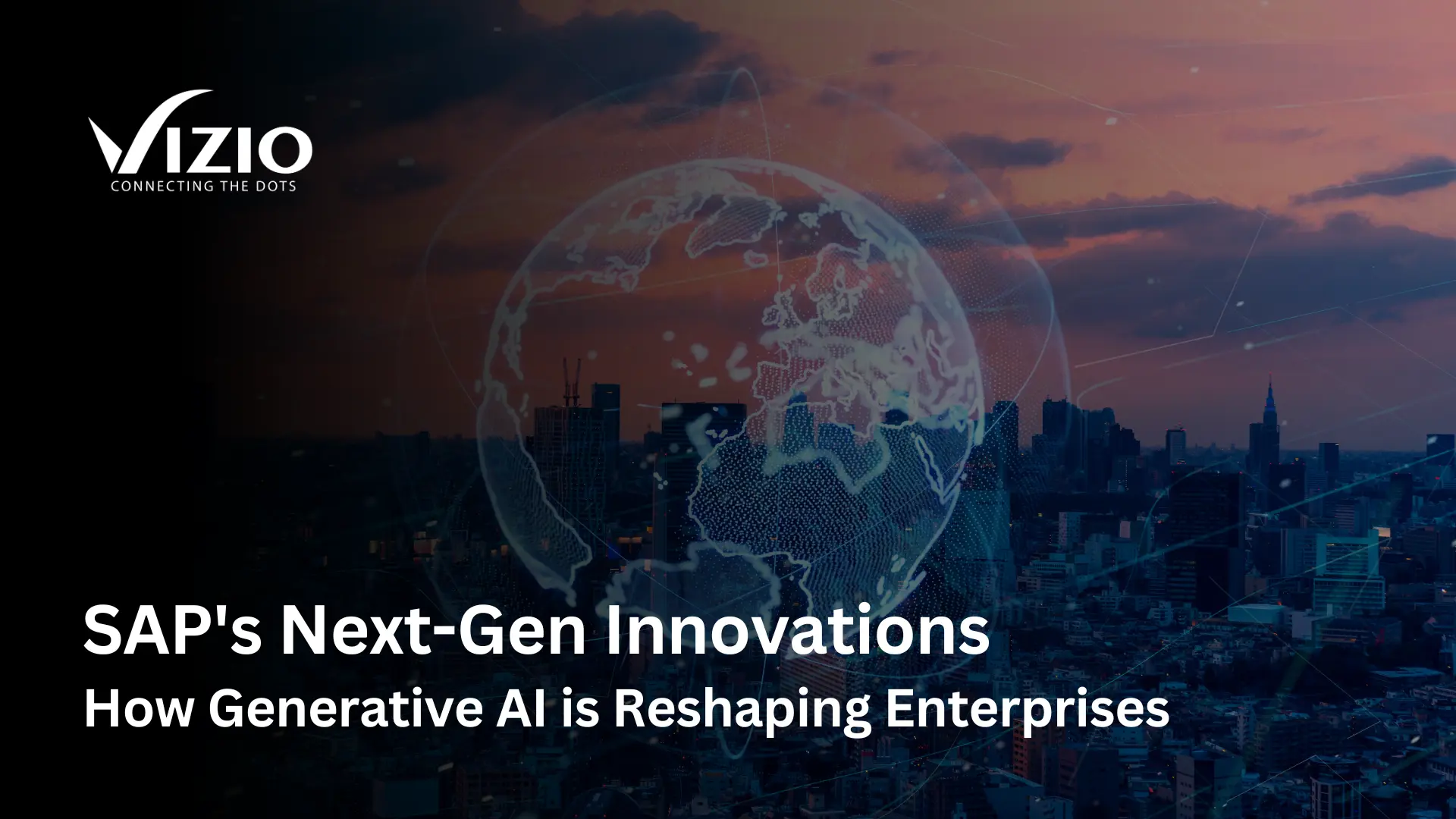Introduction
Technological innovations are constantly reshaping how enterprises operate in today’s fast-paced business landscape. SAP, a leading provider of enterprise software solutions, is at the forefront of these advancements.
With their next-gen innovations, SAP is embracing the power of generative AI to revolutionize how businesses function.
In this blog, we will delve into the groundbreaking impact of generative AI on enterprises and explore how SAP’s cutting-edge technologies are reshaping the business landscape.
Generative AI in Enterprise
Generative AI, a subset of artificial intelligence, is a technology that can create new content, such as images, text, or even code, based on patterns and examples it has learned. This technology has immense potential to transform various aspects of enterprise operations.
From automating repetitive tasks to enhancing customer experiences, generative AI can significantly benefit businesses.
Generative AI can automate routine and tasks that consume significant time and resources. It allows employees to focus on more strategic and creative aspects of their work, driving innovation and improving productivity.
Generative AI can significantly enhance customer engagement and conversion rates by generating personalized marketing campaigns based on customer data, leading to increased revenues for businesses.
Another area where generative AI can make a remarkable impact is in product design optimization. Businesses can identify the most efficient and cost-effective design options by simulating different design variations and analyzing their performance.
It saves time and resources and leads to improved product quality, satisfying customer needs and preferences.
Use Cases and Examples
The real-world applications of generative AI are vast and diverse. One prominent use case is in the creative industry, where generative AI is being used to generate unique and compelling designs.
For example, SAP has developed a solution that uses generative AI to create personalized marketing campaigns based on customer data. It has resulted in higher engagement and conversion rates for businesses.
Another example is in manufacturing, where generative AI is used to optimize product designs. Businesses can identify the most efficient and cost-effective design options by simulating different design variations and analyzing their performance. It saves time and resources and leads to improved product quality.
Moreover, generative AI can be applied to various domains, such as healthcare, finance, and supply chain management, to name a few.
In healthcare, generative AI can assist in disease diagnosis and treatment planning by analyzing patient data and providing valuable insights to healthcare professionals.
In finance, it can help in fraud detection and risk assessment by analyzing large volumes of financial data. Supply chain management can optimize inventory management and streamline logistics operations, leading to improved efficiency and reduced costs.
Benefits and Challenges
The benefits of generative AI in enterprises are numerous. Firstly, it can significantly enhance productivity by automating repetitive and time-consuming tasks. It allows employees to focus on their work’s more strategic and creative aspects.
Additionally, generative AI can improve decision-making by providing valuable insights and recommendations based on data analysis.
Generative AI can also enhance customer experiences by personalizing marketing campaigns and increasing engagement and conversion rates. It can generate unique and compelling designs that resonate with customers, leading to increased brand loyalty and customer satisfaction.
However, there are some challenges to be addressed:
A major concern with generative AI is its ethical implications. As AI becomes more advanced, there is a need to ensure that it is used responsibly and ethically. Privacy concerns and biases in data used for training generative AI models are important factors that must be considered and addressed.
Another challenge is the complexity of implementing generative AI systems and integrating them with existing business processes. It requires expertise and resources, which may pose a barrier for some businesses. It is essential to have a clear strategy and roadmap for implementation, along with adequate employee training and support.
Integration with SAP Systems
SAP recognizes the importance of integrating generative AI with existing systems to maximize its potential. By leveraging SAP’s ecosystem of solutions, businesses can seamlessly integrate generative AI into their operations.
This integration enables businesses to leverage the power of generative AI while benefiting from the robustness and reliability of SAP systems.
SAP provides a range of tools and services that facilitate the integration and implementation of generative AI solutions. These tools enable businesses to incorporate productive AI capabilities into their existing workflows and processes, ensuring a smooth and efficient transition.
By integrating generative AI with SAP systems, businesses can unlock the full potential of this technology and drive innovation in their operations.
Future Implications
The role of generative AI in enterprises is expected to continue expanding. We can expect to see even more innovative use cases and applications as technology advances. From personalized customer experiences to optimized supply chain management, generative AI has the potential to reshape various aspects of business operations.
With advancements in generative AI, businesses can harness the power of data and automation to gain a competitive edge in the market. By leveraging productive AI technologies, businesses can improve decision-making, enhance customer experiences, and optimize their operations for better efficiency and productivity.
Conclusion
SAP’s next-gen innovations, particularly in generative AI, are transforming how enterprises function. The real-world applications and benefits of this technology are immense. However, businesses must address the challenges and ensure responsible implementation.
By integrating generative AI with SAP systems, businesses can harness its power to drive innovation and stay ahead in today’s competitive landscape.

